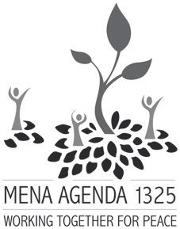Syria Crisis
If you have any difficulty reading this newsletter in HTML, please view it online.

This edition of PeaceWomen ENews focuses on the deteriorating situation in Syria. At this time of brutal violence and gross violations, we wanted to focus on the women, peace and security aspects of the crisis. News with gender perspectives remains very limited but we have included below some news sources and articles on the situation.
In a recent statement, WILPF reiterated our call for an arms embargo on Syria and demanded that all Member States, including Russia, cease any and all military sales and assistance. The situation is fuelled by the arms trade, both legal and illegal, which has lead to the region being awash with weapons. As we prepare for upcoming negotiations on the Arms Trade Treaty, the situation in Syria must remain front and centre to remind us the ATT is about life and death. The Arms Trade Treaty has the potential to prevent arms transfers in situations bearing violations of international humanitarian law (IHL) and/or human rights standards, incidents of gender-based violence, or threats to sustainable development. We must support a strong ATT (see more on ATT here).
WILPF also continues to reiterate the importance of women's participation. Women's voices will be crucial in any attempt to find a political, peaceful and sustainable solution to what is rapidly becoming a civil war. The importance of meaningful participation in the region will be discussed further at WILPF International's upcoming conference on the Middle East North Africa (MENA) region in Geneva on June 20-22. Women from eight countries in the MENA region—Iraq, Libya, Tunisia, Egypt, Jordan, Lebanon, Yemen and Morocco—will participate in this meeting which follows national consultation in each of their countries. Discussions will focus on supporting efforts to reinforce peace and security in the region. (see more on WILPF MENA work here).
As World Refugee Day approaches on June 20, we send our solidarity to all those displaced around the world, including the thousands of civilians who are fleeing the shocking violence in Syria.
This edition includes an article with a summary of efforts by the UN and the international community, highlighting the need for Russia and China to stop obstructing international action and some of the new advocacy calls.
Please share any information, resources, or news on Syria with us at info@peacewomen.org.
NGOWG June MAP
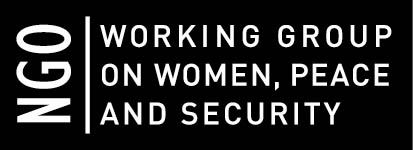 The NGO Working Group on Women, Peace and Security has released the June 2012 version of their Monthly Action Points (MAP) on Women, Peace and Security for the UN Security Council.
The NGO Working Group on Women, Peace and Security has released the June 2012 version of their Monthly Action Points (MAP) on Women, Peace and Security for the UN Security Council.
For June, in which China has the Security Council presidency, the MAP provides recommendations on country and regional situations including: Afghanistan, the Democratic Republic of the Congo, Libya, Syria, and West Africa. The MAP also provides recommendations regarding the expected discussion of the Protection of Civilians.
The following is the June 2012 MAP's recommendation on Syria:
The violence in Syria continues to worsen as the civilian population continues to be killed, tortured, and their rights violated, including through ongoing arbitrary arrests and detentions. In its discussion on the situation in Syria, the Security Council should ensure the Syrian government fully cooperates with the United Nations Supervision Mission in Syria (UNSMIS) to implement the joint six-point plan. We again ask the Security Council to impose an arms embargo on Syria; to impose targeted sanctions against Syrian leaders implicated in human rights violations, following a fair and transparent process; and to refer the situation in Syria to the International Criminal Court. Member States of the United Nations, including Members of the Security Council, should ensure they immediately cease any and all military sales and assistance. The Security Council should ensure there is a strong human rights monitoring component in UNSMIS, which must include gender expertise. This component should be well resourced and equipped to ensure victims of human rights abuses, including women, are protected from retaliation. These experts should be in a position to recognize people who are arbitrarily detained, protect interviewees from retaliation, ensure the confidentiality and safekeeping of interviews, and interview women who have been sexually abused and children who have been tortured.
Summary of UN Efforts in Syria
Summary by Amanda Barrow, PeaceWomen Intern.
Although incidents of violence in Syria have been mounting since the uprising against President Bashar Assad's regime in March 2011, the atrocities occurring in the town of El-Houleh on 25 May 2012 and in the province of Hama on 6 June 2012 have prompted heightened international attention to the situation.
Throughout the past year, several UN bodies, including the Human Rights Council, the General Assembly, and the Security Council, have responded to the escalating crisis in Syria. In August 2011, the Human Rights Council created the Commission of Inquiry on Syria to monitor gross violations of Human Rights. This body, along with the general Assembly, has consistently put forth resolutions condemning rights abuses and calling upon the Syrian Arab Republic to put an end to its attacks on civilians. In the past few months, the Security Council has also become increasingly engaged with the situation in Syria. On 14 April, the Council authorized 30 unarmed observers to report on the implementation of the ceasefire through its adoption of Resolution 2042 and on 21 April 2012, the UN Supervision Mission in Syria was established under Resolution 2043.
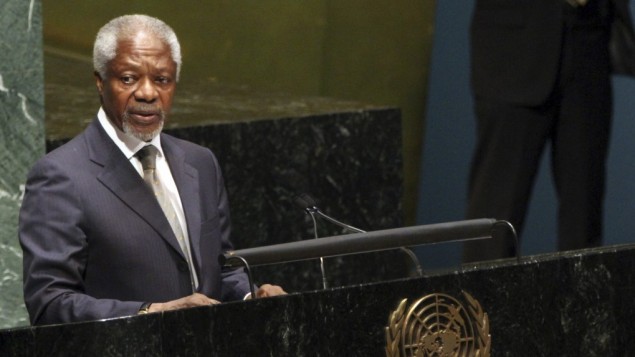
Furthermore, the Security Council has offered its support to the Six-Point Plan spearheaded by the UN-Arab League Special Envoy Kofi Annan, which was until recently considered the best opportunity to resolve the conflict. Yet, the latest displays of indiscriminate violence, which killed more than 100 individuals, have demonstrated that past efforts were insufficient and more decisive action is needed. The United Nations, and the Security Council in particular, must move beyond a mere condemnation of the level of violence in Syria. In order to end suffering in Syria, the Security Council must consider new options:
- The imposition of an arms embargo on Syria;
- The implementation of targeted sanctions against Syrian leaders implicated in human rights violations;
- The referral of the situation in Syria to the International Criminal Court (ICC).
For any of these actions to occur, Russia and China must stop obstructing the Security Council. The two powers have twice vetoed Security Council resolutions that, condemning President Assad's crackdown on dissent, could have led to sanctions against the Syrian government. As the United Nations' involvement in Syria grows, it is essential that the Security Council be attentive to the gender dimensions of the crisis. We urge the Security Council to consider and respond to the women who are amongst the civilians being killed by the shelling and bombing of residential areas and who, as refugees, are uniquely vulnerable in armed conflict and humanitarian crisis. Under-Secretary General and Head of UN Women Michelle Bachelet, notably touched upon the situation in Syria in her briefing to the UN Security Council on Women, Peace, and Security on 24 April 2012. Focusing upon women's potential to fill active roles in the political transformation, she urged, "Women's participation is vital both in resolving the crisis and in making sure that women's interests are addressed in agreements moving forward. Women's participation is also needed to improve reporting on gender-specific impacts of violence."
Selected Key United Nations Documents Relating the the Situation in Syria:
Security Council
- S/RES/2042 (2012) 14 April 2012: Authorizes an advance team to monitor ceasefire in Syria.
- S/RES/2043 (2012) 21 April 2012: Establishes the UN Supervision Mission in Syria
General Assembly
- A/RES/66/253 (2012) 21 February 2012
- A/RES/66/176 (2012) 23 February 2012
Human Rights Council
- A/HRC/RES/S-16/1 (2011) 4 May 2011: Calls for the creation of a fact-finding mission by the Office of the High Commissioner for Human Rights to investigate all alleged human rights violations.
- A/HRC/RES/S-17/1 (2011) 23 August 2011: Establishes the commission of inquiry.
- A/HRC/RES/S-18/1 (2011) 5 December 2011: Deplores the Government of the Syrian Arab Republic's noncooperation with the independent commission of inquiry and continued violations of human rights.
- A/HRC/RES/19/22 (2012) 10 April 2012: Extends the mandate of the commission of inquiry.
- A/HRC/RES/S-19/1 (2012 4 June 2012: Condemns the recent killings in El-Houleh, calls upon the Syrian authorities to grant humanitarian organizations access to provide assistance, and calls for the implementation of the Six-Point proposal.
(Image: 7 June 2012: Kofi Annan addresses the the General Assembly on Syria's failure to implement the Six-Point Plan)
Statement by WILPF on the Situation in Syria
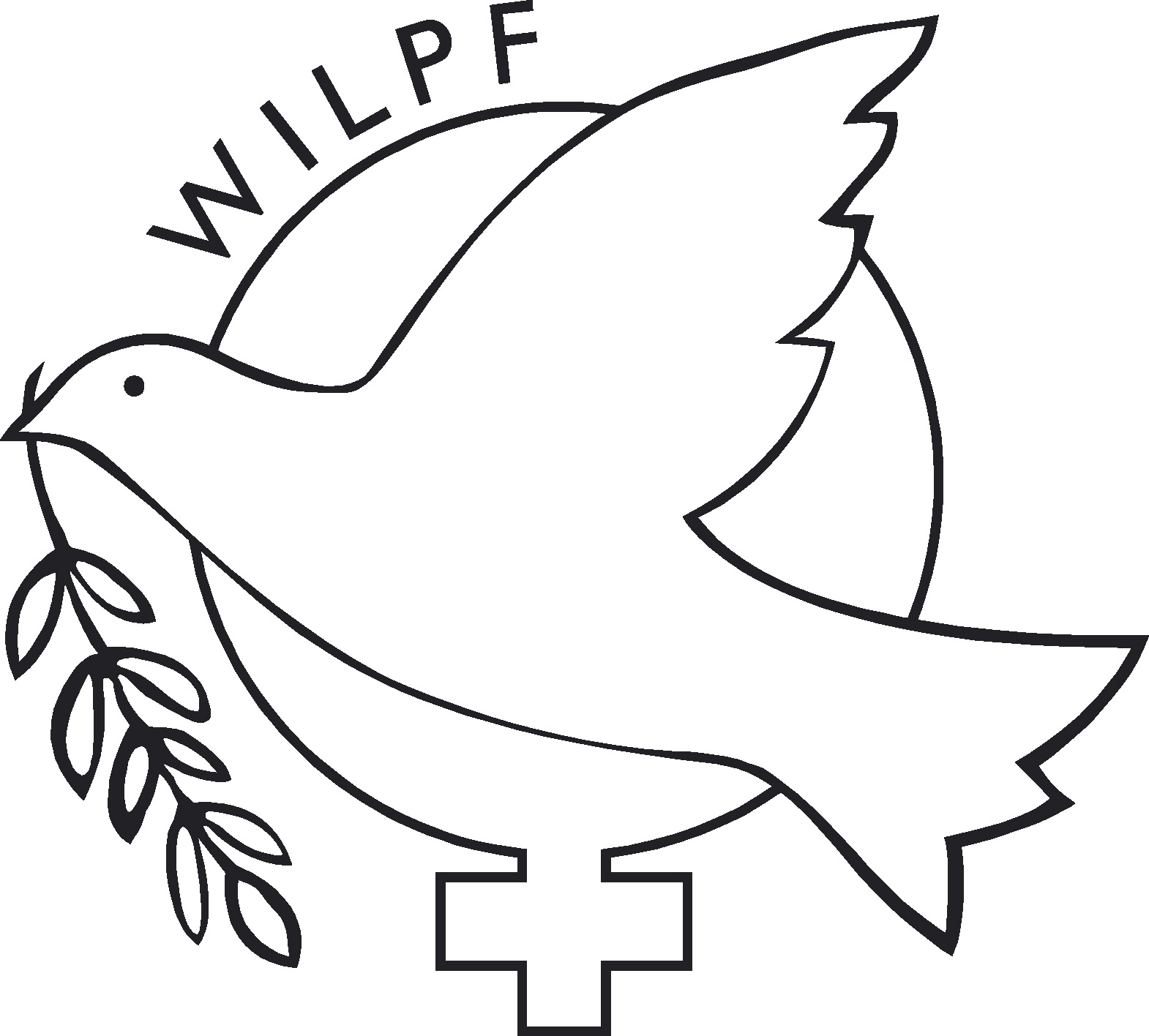 As noted in the editorial WILPF continues to condemn the violence in Syria. In a recent statement, we reiterated our call for an arms embargo on Syria and demanded that all Member States, including Russia, cease any and all military sales and assistance. The situation is fuelled by the arms trade, both legal and illegal, which has lead to the region being awash with weapons.
As noted in the editorial WILPF continues to condemn the violence in Syria. In a recent statement, we reiterated our call for an arms embargo on Syria and demanded that all Member States, including Russia, cease any and all military sales and assistance. The situation is fuelled by the arms trade, both legal and illegal, which has lead to the region being awash with weapons.
In the WILPF International Statement we stated that "since the large-scale demonstrations, which began on 16 March 2011, the Syrian security forces have been repeatedly using lethal force against peaceful protesters throughout Syria. The silencing of the media has made independent verification difficult, but the evidence of human rights violations is becoming overwhelming: over 400 protesters killed since March, innumerable arrests of both protesters and human rights defenders, and allegations of torture…"
Click here to continue reading WILPF's statement on Syria.
Take Action: Stop Arming Human Rights Abusers
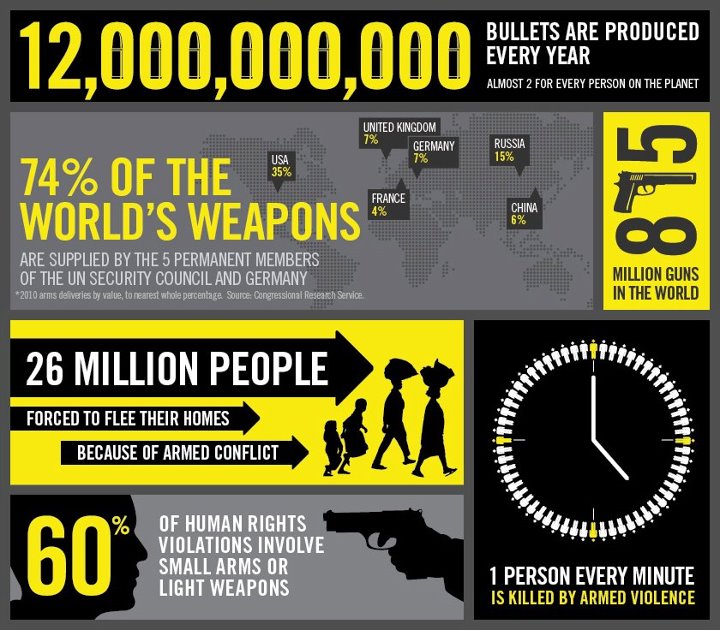
- This week is the Global Week of Action Against Gun Violence
The Week of Action highlights the international campaign to stop the proliferation and misuse of small arms and light weapons. This year the Week of Action is taking place from the 11-17 June 2012. Materials for this year's Week of Action are available here from IANSA.
- Sign the petition to support Amnesty International's campaign against arms trade:
Treaties regulate the global trade of many products – even bananas and dinosaur bones – but not guns and bullets. We need a strong Arms Trade Treaty now that will stop tools of death from getting into the hands of people like Syria's Assad and Sudan's Bashir who continue to brutalize their people.Urge the Obama Administration to support a “Bullet Proof" Arms Trade Treaty now.
- The Campaign for a Bulletproof Arms Trade Treaty
The “Speak Out! Control Arms Now” campaign, led by the Control Arms coalition, aims to make sure the treaty is one that stops the killing by preventing weapons being used for abuses or atrocities. Sign the petition today. Also note the Global Day of Action is coming up on - 27 JUNE 2012.
- WILPF & ATT
if you are a WILPF member, email us to get the WILPF ATT tool kit. (email: info@peacewomen.org). WILPF is also partnering with these 2 international organisations - Amnesty International and the Women's Network of the International Action Network on Small Arms (IANSA)- to launch a Joint Policy Paper on Gender and the Arms Trade Treaty (ATT). Please join us in lobbying your Governments on this important aspect of the ATT.

